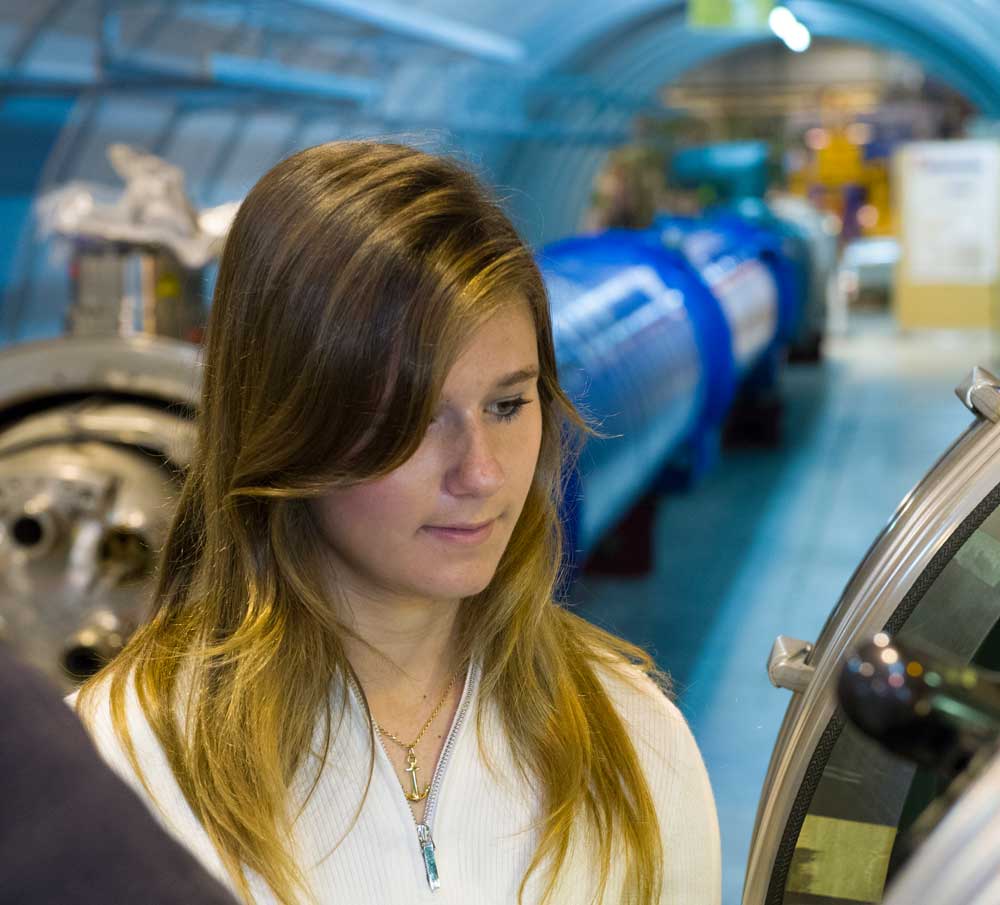Google Science Fair Grand Prize winner Brittany Wenger today wrapped up a day-and-a-half's visit of the CERN site. Her winning project uses an artificial neural network to diagnose breast cancer – a non-invasive technique with significant potential for use in hospitals.
Besides winning a $50,000 scholarship from Google and work-experience opportunities with some of the contest hosts, Brittany was offered a personal tour of CERN. "This visit has just been incredible," she says. "I got to speak with [CERN's Director for Accelerators and Technology] Steve Meyers about some of the medical applications and technologies coming out of the LHC experiments and how they can be used to treat cancer."
Brittany and her mother Camilla visited some of CERN's most important facilities, including the ATLAS control room, the Antiproton Decelerator facility, the CERN Computing Centre and the LHC superconducting magnet test hall (SM18). "Realising the scale of everything was amazing," says Wenger. "Today I got to see the GRID in the Computing Centre, which was incredible, especially as I am such a computer science buff."
Wenger used cloud computing to create her winning project – a computer program that models neural networks to detect complex patterns of cancerous cells in biopsies of breast tissue. "The ultimate goal is for doctors all over the world to be able to access the programme, using it to diagnose patients while contributing more data so that it can 'learn' more and improve," she says. "It's currently 99.1% sensitive to malignancy and may be hospital-ready. As I get more samples, this should increase."
"These aren't experiences that come along every day," says Wenger, "and I've absolutely loved my time at CERN."
You can read more about Wenger's winning project on her Google Science Fair page and you can contribute data to the project at Cloud4Cancer.

